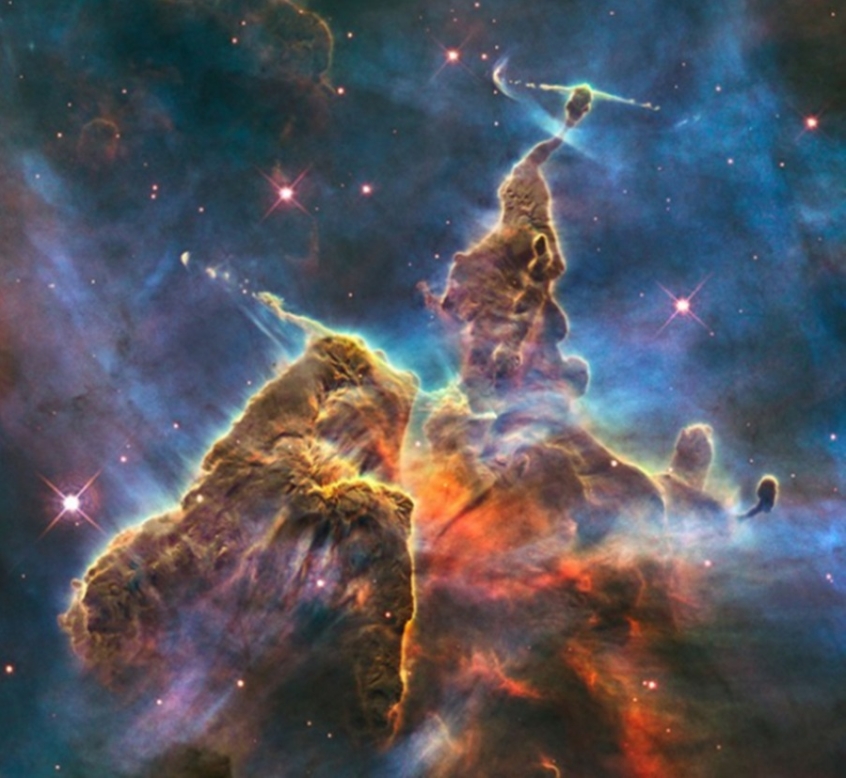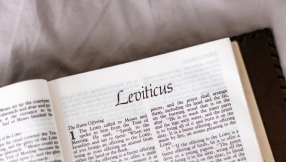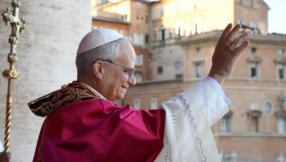Last month the Gallup polling group released the results of its latest surveys of Americans' beliefs about human origins. Since 1982 they've been asking the same question:
Which of the following statements comes closest to your views on the origin and development of human beings?
1. Human beings have developed over millions of years from less advanced forms of life, but God guided this process. 2. Human beings have developed over millions of years from less advanced forms of life, but God had no part in this process. 3. God created human beings pretty much in their present form at one time within the last 10,000 years or so.

Of course it would be nice to see more options here. Many old earth creationists say God created human beings pretty much in their present form, but 200,000 - 300,000 years ago; which option should they choose? And the line is blurred in option 1 between evolutionary creationists who think God's 'guidance' need not take the form of interventions to fill gaps in the scientific explanation, and Intelligent Design proponents who think such divine interventions are detectable scientifically. Still, it's nice that the same questions have been asked for 35 years so we can see trends in American culture over this time.
The headline for the Gallup press release was 'Belief in Creationist View of Humans at New Low'. For the first time since 1982, the number of American adults selecting option three has dipped below 40 per cent. This is very good news for those of us who work at BioLogos, the most prominent organization defending the evolutionary creation view of human origins. It appears as though our work is having an effect, as the rise in option one was equivalent to the decline in option three over the past three years.
But after this initial good news, what strikes many people in the UK and elsewhere in the world is that there are still almost 40 per cent of Americans who are young earth creationists, holding beliefs that are contradicted by the overwhelming majority of scientists (in a separate poll from 2015, 99 per cent of those with a PhD in biology or medicine affirmed that humans evolved). And when restricted to Americans who attend church weekly, 65 per cent select the young earth creationist option. What accounts for this stunning disconnect between Americans' religious convictions and what science has discovered about our origins?
The reasons are surely multifarious and complex. There is a fascinating study waiting to be done that digs deep into the reasons for how the young earth creationist rhetoric has been so successful over the past 50 years in America. My impression from the people I talk to is that at least the surface reason is that they fear accepting the science of evolution will mean losing confidence in the trustworthiness of Scripture. But there must be more to it than that below the surface, where cultural assumptions and predispositions lie silently and unconfronted, but exerting enormous influence. It is certainly not only American Christians who are so concerned about the trustworthiness of Scripture. Why does that concern come out in this peculiar way in America?
I wonder if it has something to do with our history regarding the separation of Church and State. The Protestant Reformation affected Europe's Christianity momentously, but the major Protestant denominations were still tied to political institutions. A few of the American colonies had state Churches initially, but in 1791 the First Amendment to the Constitution guaranteed the 'free exercise' of religion and prohibited the establishment of a national Church. Some state Churches were immediately abandoned; others lingered on for awhile, but all were eventually eliminated.
That means the practice of religion over here accommodated itself to the democratic populism that fundamentally distrusts authority and experts. And that religious populism was very successful. Historian Mark Noll reports that the population of the United States between 1790 and 1860 grew by a factor of eight, and during this same time adherence to a church grew twice as fast.
The separation of Church and State has certainly had its merits (like the avoidance of the Thirty Years' War), but one of its negative consequences is that there is less accountability for religious belief and practice. Without longstanding institutions and traditions to guide, where does one turn? To the Bible, and the Bible alone – the only authority religious populists accepted.
This is not sola scriptura as the Reformers understood it (which still operated within the history and traditions of the Church). The populist version encourages everyone who can read to 'interpret' the Bible for themselves. I put 'interpret' in scare quotes because there is almost a rejection of the idea that any interpretation is required. The rich and multifaceted approach to Scripture developed by the Church Fathers was reduced in this environment to the literal sense, the plain reading. In the same article Mark Noll quotes from an 1843 issue of The Methodist Quarterly which typifies the approach to Scripture that developed among the populists:
'We claim to be, not only rigid literalists, but unsparing iconoclasts – ruthless demolishers of all theories. We wish to strip the passage of all the superincumbent strata which ingenious men have deposited all round it, and come down to the plainest and most obvious literal reading [of] the text.'
So, if that's how you read the Bible, science is a threat to its trustworthiness because the 'obvious literal reading' seems to say, for example, that the earth is only 6,000 years old and the stars are even younger (Genesis 1:14); that everyone who plays the flute descended from Jubal (Genesis 4:21); and that all humans spoke the same language until about 2000 BC and the Tower of Babel (Genesis 11:1).
Are there serious ways of reading Scripture that don't force us to accept these plain readings of the text? Many serious scholars of the Bible believe so, but their interpretations take us deep into issues like ancient Near Eastern cultures and cognitive environments. When I speak to church groups about this topic, invariably it gets to the point where someone in the audience throws up his or her hands and asks, 'So in order to read the Bible I'm going to have to get a couple of PhDs?'
I always affirm two points in response to that: 1. Everyone can pick up a Bible and read it profitably. We Christians believe that God speaks to all of us through his Word, not just to the experts. But then 2. We all need experts whom we trust in our communities who can help us read Scripture better. We recognize many fields in which we all have some ability, but some people have much more (eg, auto repair, cooking, knowledge of history); reading the Bible is another of these fields.
The difficulty (especially for populists) is to trust experts while recognizing they are fallible. But that's what we have to do if we want to make sense of the ever-accumulating knowledge in increasingly specialized fields of study. The Bible itself inspired the development of modern science, as Christian natural philosophers were convinced by it that creation was a free and contingent act of a loving God. As such, they couldn't deduce how it worked from some necessary first principles, but had to go out into the world and observe and experiment. Their careful work over the centuries tends toward truth and enriches our view of the world.
We need not fear that science will undermine the trustworthiness of Scripture. Perhaps that message will penetrate American culture more fully and the polling numbers will continue to improve.
Dr Jim Stump is senior editor at Biologos. He has a PhD in philosophy from Boston University and was formerly a philosophy professor and academic administrator.













